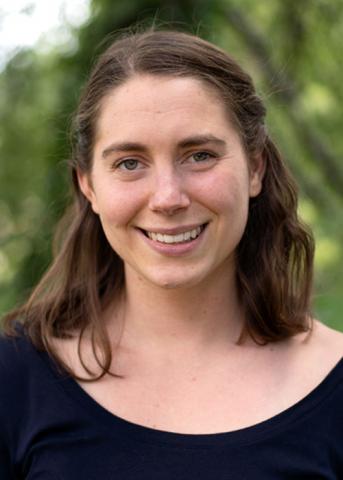What research are you working on?
My thesis is looking at disaster resilience for older adults in King County. I’m planning to interview senior center directors about how their organizations can support older adults’ health and safety during and after a natural disaster. I’ve also been working with my adviser, Nicole Errett, on a project funded by the Robert Wood Johnson Foundation that looks at how state laws address public health during disaster recovery.
For my practicum, I’m working with Tania Busch Isaksen and partners at Public Health - Seattle & King County to assess how an innovative risk communication tool (it’s a comic!) can improve older adults’ understanding of the health risks of extreme heat. As people age, their bodies have a harder time adapting and their risk of heat-related illness increases.
What experiences at the UW have been most influential?
One of my favorite classes was through the Livable City Year program. I was on a team with forestry graduate students, who were amazing at identifying trees. We spent the quarter working with Tacoma’s urban forester and planner to develop recommendations for the city’s upcoming tree planting project. We focused on how the project could be implemented in partnership with the community to address inequities in access to urban green space.
What do you like most about Seattle?
I’ve loved observing and being part of civic life in Seattle; it’s a really interesting time to be in this city and to see how it grapples with challenges like homelessness, gentrification and rapid growth. We have fantastic civic servants who care deeply about making Seattle and King County a healthier, more equitable, and more resilient place to live.
What are your future goals?
To find a PhD program where I can continue to explore solutions to the challenge of creating policies, programs and environments that support healthy aging and promote health equity. After that, I see myself working for a government agency or a think-tank that’s committed to partnering with communities to promote health and well-being at every age.
What motivates you about public health?
Public health is a truly collaborative field, and that’s really fulfilling to be a part of. I think public health makes the biggest impact by engaging a diverse group of partners and working at a systems level to promote health and address social inequities.
Why did you choose the UW?
I was excited to live in a new part of the country. I thought the UW’s connections to local, county and state government would offer valuable opportunities for connecting my studies to policy and practice. I also appreciated how many amazing schools and interdisciplinary programs the UW offered, because I wanted to integrate my public health courses and research with other disciplines such as public policy, sociology and environmental science.
Any hobbies or extracurricular activities?
This spring, I volunteered to help organize an event called Worker’s Memorial Day that honored the 65 workers who lost their lives on the job in Washington state in 2017. I’ve also put a lot of time recently into working with students and staff in my department to make sure next year’s incoming students feel welcome and supported. We’re creating a mentor program and weekly brown-bag lunch to create a space where first years can learn from each other.
In my free time, running has been a great way to explore and get away from my laptop. I also like to bake bread, and my friends tease me for this, but I love making friends with my neighborhood cats.
What advice would you give prospective students?
Don’t be afraid to ask tough questions before you decide on a program. Wherever you end up, finding mentors makes all the difference in the world.

